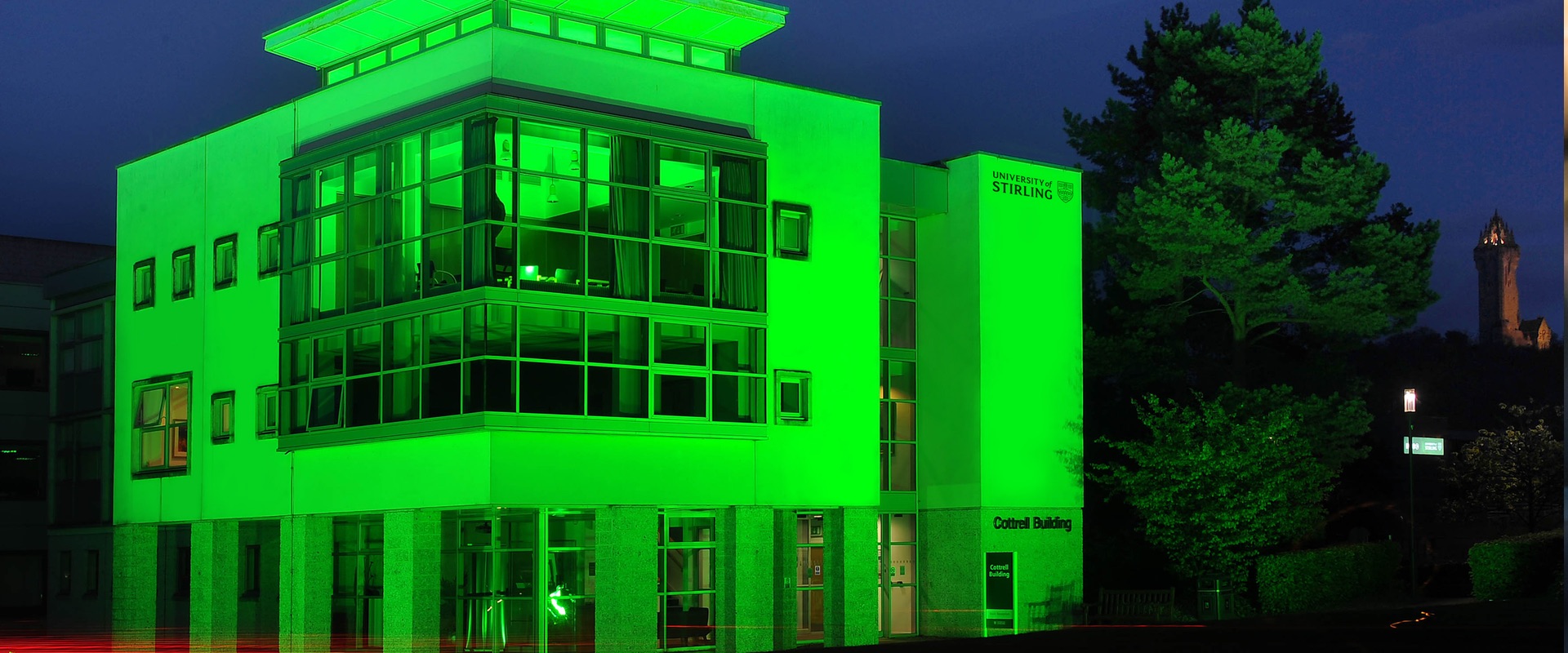The University of Stirling’s Cottrell Building was last night (Monday 14 May) illuminated green in support of Mental Health Awareness Week.
Stirling joined other landmarks across the UK – including Edinburgh Castle and the Bank of England – when it lit up the building between 9pm and midnight.
The most recent statistics show that two thirds of people in Scotland will experience a mental health problem at some stage in their lives; however, most will never seek professional help.
Mental Health Awareness Week encourages people to think about their mental health, steps they can take to improve their wellbeing and prevent conditions from developing in the first place.
Joanna Morrow, Deputy Secretary of the University, said: “The University of Stirling is proud to be supporting Mental Health Awareness Week by joining landmarks across the UK in lighting up our Cottrell Building green.
“Protecting and enhancing the mental health of both staff and students at Stirling is of great importance to the University and a range of services are in place to provide support where required.
“Student Support Services operate a counselling and wellbeing service on campus where qualified counsellors and mental health professionals are on hand to provide guidance and support. Students can connect with these services by: dropping into the Student Services Hub, at the Queen’s Court entrance of the Cottrell Building; calling 01786 466 022; or emailing ask@stir.ac.uk. They can also register for counselling directly by simply completing a registration form and sending this to ask@stir.ac.uk
“For more information on Mental Health Awareness Week, we encourage staff and students to visit: mentalhealth.org.uk.”
Organised by the Mental Health Foundation, Mental Health Awareness Week launched in 2001. This year’s event, from May 14 – 20, is focussing on stress – a key factor in developing mental health problems. By combating stress, it helps tackle other mental health problems, such as anxiety and depression, and – in some instances – self-harm and suicide.
Background information
Media enquiries to Greg Christison, Communications Officer, on 01786 466 687 or greg.christison@stir.ac.uk
Image of University of Stirling’s Cottrell Building attached.
University of Stirling
The University of Stirling is ranked fifth in Scotland and 40th in the UK for research intensity in the 2014 Research Excellence Framework. Stirling is committed to providing education with a purpose and carrying out research which has a positive impact on communities across the globe – addressing real issues, providing solutions and helping to shape society.
Interdisciplinary in its approach, Stirling’s research informs its teaching curriculum and facilitates opportunities for knowledge exchange and collaboration between staff, students, industry partners and the wider community.
The University’s scenic central Scotland campus – complete with a loch, castle and golf course – is home to more than 14,000 students and 1500 staff representing around 120 nationalities. This includes an ever-expanding base for postgraduate study.

